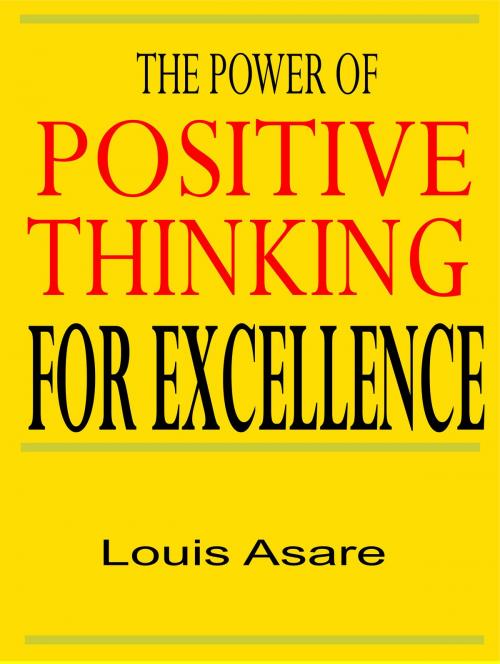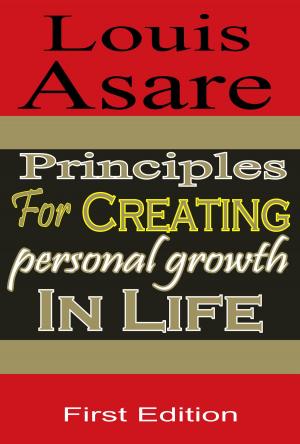The Power Of Positive Thinking For Excellence
Biography & Memoir, Business, Business & Finance, Entrepreneurship & Small Business, Entrepreneurship, Nonfiction, Social & Cultural Studies| Author: | Louis Asare | ISBN: | 1230003093290 |
| Publisher: | Louissoft publication | Publication: | February 20, 2019 |
| Imprint: | Language: | English |
| Author: | Louis Asare |
| ISBN: | 1230003093290 |
| Publisher: | Louissoft publication |
| Publication: | February 20, 2019 |
| Imprint: | |
| Language: | English |
Positive thinking is a mental and emotional attitude that focuses on the bright side of life and expects positive results. A positive person anticipates happiness, health and success, and believes he or she can overcome any obstacle and difficulty.
Positive thinking is not a concept that everyone believes and follows. Some, consider it as nonsense, and scoff at people who follow it. However, there is a growing number of people, who accept positive thinking as a fact, and believe in its effectiveness.
It seems that this subject is gaining popularity, as evidenced by the many books, lectures and courses about it. To use it in your life, you need more than just to be aware of its existence. You need to adopt the attitude of positive thinking in everything you do
Researchers have long known that negative emotions program your brain to do a specific action. When that tiger crosses your path, for example, you run. The rest of the world doesn’t matter. You are focused entirely on the tiger, the fear it creates, and how you can get away from it.
In other words, negative emotions narrow your mind and focus your thoughts. At that same moment, you might have the option to climb a tree, pick up a leaf, or grab a stick — but your brain ignores all of those options because they seem irrelevant when a tiger is standing in front of you.
This is a useful instinct if you’re trying to save life and limb, but in our modern society we don’t have to worry about stumbling across tigers in the wilderness. The problem is that your brain is still programmed to respond to negative emotions in the same way — by shutting off the outside world and limiting the options you see around you.
The benefits of positive emotions don’t stop after a few minutes of good feelings subside. In fact, the biggest benefit that positive emotions provide is an enhanced ability to build skills and develop resources for use later in life.
Positive thinking is a mental and emotional attitude that focuses on the bright side of life and expects positive results. A positive person anticipates happiness, health and success, and believes he or she can overcome any obstacle and difficulty.
Positive thinking is not a concept that everyone believes and follows. Some, consider it as nonsense, and scoff at people who follow it. However, there is a growing number of people, who accept positive thinking as a fact, and believe in its effectiveness.
It seems that this subject is gaining popularity, as evidenced by the many books, lectures and courses about it. To use it in your life, you need more than just to be aware of its existence. You need to adopt the attitude of positive thinking in everything you do
Researchers have long known that negative emotions program your brain to do a specific action. When that tiger crosses your path, for example, you run. The rest of the world doesn’t matter. You are focused entirely on the tiger, the fear it creates, and how you can get away from it.
In other words, negative emotions narrow your mind and focus your thoughts. At that same moment, you might have the option to climb a tree, pick up a leaf, or grab a stick — but your brain ignores all of those options because they seem irrelevant when a tiger is standing in front of you.
This is a useful instinct if you’re trying to save life and limb, but in our modern society we don’t have to worry about stumbling across tigers in the wilderness. The problem is that your brain is still programmed to respond to negative emotions in the same way — by shutting off the outside world and limiting the options you see around you.
The benefits of positive emotions don’t stop after a few minutes of good feelings subside. In fact, the biggest benefit that positive emotions provide is an enhanced ability to build skills and develop resources for use later in life.















